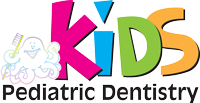
15 Jul Common Question: Does My Child Need Braces?
As your child’s baby teeth get replaced with permanent teeth, you may notice they look crowded, crooked, or that your child has an overbite or underbite. A number of factors affect your child’s smile, including inherited genetics, thumb sucking and pacifier use, poor nutrition, and accidents.
Crooked teeth are not the only indicator that your child needs braces. A misaligned bite, jaw issues, speech difficulties, and other problems can be rectified with braces. Not correcting a misaligned bite with braces may result in further oral health problems. Learn more about the these problems with braces from the American Dental Association
Signs that Braces are Needed
- Trouble Chewing
- Crooked Teeth
- Crowded Teeth
- Teeth Grinding
- Mouth Breathing
- Misaligned Teeth- This includes overbites, underbites, crossbites, and open bites
- Speech Difficulties
- Jaw Clicking or Shifting
- Irregular Loss of Baby Teeth
What are the Benefits of Braces?
Braces are not just for aesthetic purposes, although that is a major benefit. A beautiful, well-aligned smile brings confidence and also prevents oral health problems down the line. When your child’s bite is aligned, risk for breaking and wear decreases. Traumatic injuries and teeth grinding are more likely to occur when your child’s teeth and bite are not aligned.
Crowded teeth also provide a better opportunity for plaque to build up and cause gum disease and tooth decay. When properly spaced, it is easier for brushing to address plaque and bacteria that cause cavities. Speech difficulties typically improve with braces as well. In addition, by orienting your child’s bite and jaws properly, breathing and sleep may improve. Read our blog to learn how your child can practice good oral hygiene while wearing braces .
At What Age Should My Child Get Braces?
Most children get braces between ages 9 and 14.
By age seven, your child should visit an orthodontist for the first time. While orthodontic treatments may be suggested to begin around that time or a few years later, braces are usually recommended after all permanent teeth have grown in. The interceptive approach recommends dental appliances when your child still has baby teeth so that by the time your child gets braces they wear them for a shorter amount of time with easier correction.
It’s up to you and your pediatric dentist as to whether you want to tackle these problems early or forgo the first phase of treatment to potentially save a bit of money. The traditional approach gives similar results but your child will be in braces for longer and correction will be more difficult than it would be with early interception.
Please note that existing issues like periodontal disease and damaged, decaying, or missing teeth need to be seen to before braces. Still unsure about what treatments your child needs and when? Schedule an dental appointment at Kids Pediatric Dentistry. Dr. Lisi will examine your child’s teeth and bite before making recommendations for braces or other appliances.
